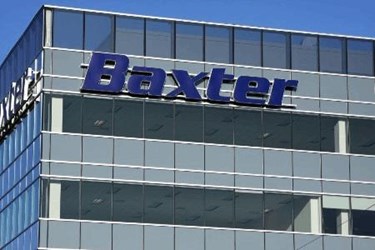Baxter Developing New Infusion Pump Platform, Reinvigorating Biosurgery
By Jof Enriquez,
Follow me on Twitter @jofenriq

Baxter finished its first full year of restructuring with yet another strong quarter. This year, the drug and medical device maker says it can sustain its momentum with the help of its core renal business, as well as a new pump technology under development. It also has high hopes for a turnaround of its disappointing biosurgery unit.
Fourth quarter revenue rose 2 percent to $2.6 billion, while full-year revenue grew 2 percent to $10.2 billion, the company reported. Sales within the U.S. were $1.1 billion, while international sales totaled $1.5 billion. For the whole year 2016, the company reported profit of $4.97 billion, according to an Associated Press report.
By business, Hospital Products sales grew one percent to $1.6 billion in the fourth quarter, fueled by strong sales of IV therapies, infusion pumps, and related IV access administration sets in the U.S., along with favorable demand for anesthesia and critical care products internationally. Sales in Fluid Systems increased 8 percent to $614 million, driven by favorable pricing and volume for IV solutions in the U.S., along with incremental placements of the SIGMA SPECTRUM infusion system.
Baxter CEO Joe Almeida told analysts that SIGMA SPECTRUM has been a strong performer for the last two years, and was considered "best in class" pump in the U.S. market in 2016. The company is planning a series of improvements to its aging pump portfolio, though. Specifically, the Colleague pump is due for an upgrade.
"We just recently also signed a development partnership deal with a very reputable company outside the U.S. that will be augmenting our outside U.S, portfolio. If you remember, Baxter still holds a significant amount of channels outside the U.S. under the Colleague pump. And as we space Colleague pump out, we’re going to come up with a new platform soon to be able to substitute that," said Almeida, according to a Seeking Alpha transcript of the call.
He also admitted that the Biosurgery unit's performance has been dismal. Lower sales in biosurgery products – which include hemostatic agents and sealants – put a dent on Surgical Care sales in the past quarter, which amounted to $349 million, still up 1 percent. Almeida says a turnaround is in the offing with R&D input and new leadership.
"We continue to view this business as a core growth platform and have significantly reallocated investments to biosurgery to improve performance. In addition, we’re pleased to welcome Wil Boren to the new role of President, Biosurgery," said Almeida.
Baxter in December acquired Claris to move into the global generic injectables business, providing another key platform for future growth.
One year from now, Almeida concludes, "I’d like to see this biosurgery business start to transform itself and look [at] some opportunities outside. I’d like to see us with probably another 100 to 200 molecules in our pipeline above what we have today. I’d like to see us with a well-defined pump technology, which is not only U.S. but is a global one that has the ability to meet industry levels of pump platforms that we need to have."
Baxter's traditional Renal business remains robust, growing 5 percent and generating sales of $1 billion in the fourth quarter. Broken down into modalities, Peritoneal Dialysis grew 6 percent, driven by increased sales and usage of the AMIA cycler. Continuous Renal Replacement Therapy (CRRT) and Hemodialysis segments were boosted by PRISMAFLEX and THERANOVA dialyzer, respectively.
During the fourth quarter, Baxter repurchased $247 million worth of common stock, or approximately 5.4 million shares outstanding. Regarding M&A, there are "plenty of targets" to be acquired, but Almeida says the first priority in 2017 is to return top quartile total shareholder returns, consistent with the goal of the preceding year.
Almeida also says Baxter is exiting India, Turkey, and Venezuela this year, and will refocus the business on Latin America and China, with the latter hopefully becoming a $1 billion market for Baxter in a few years.
